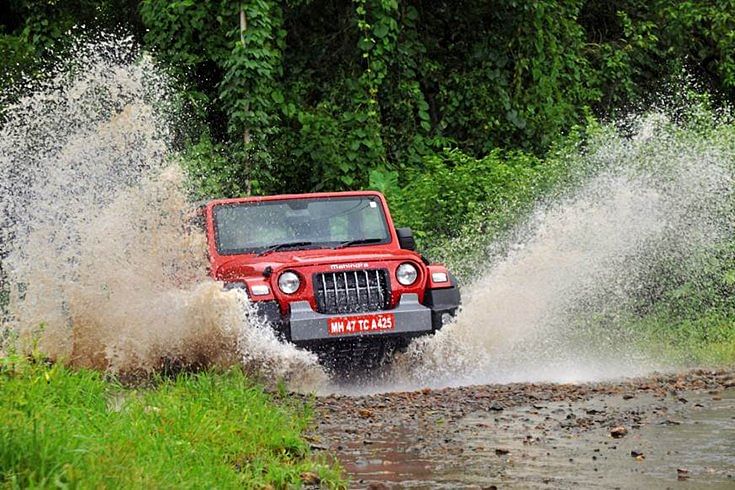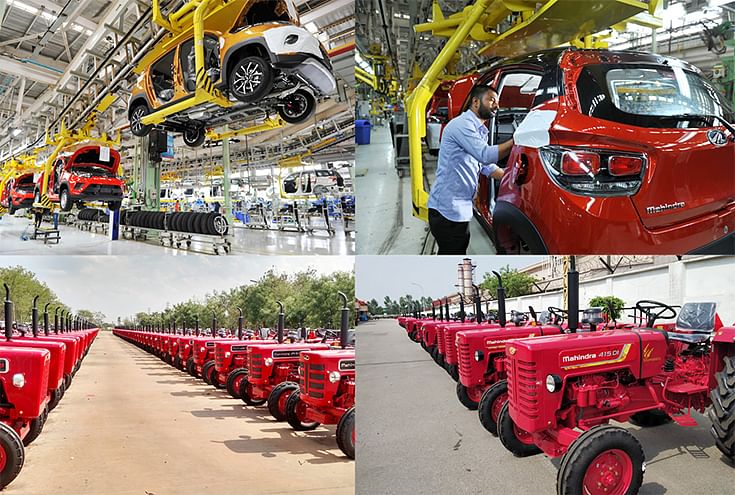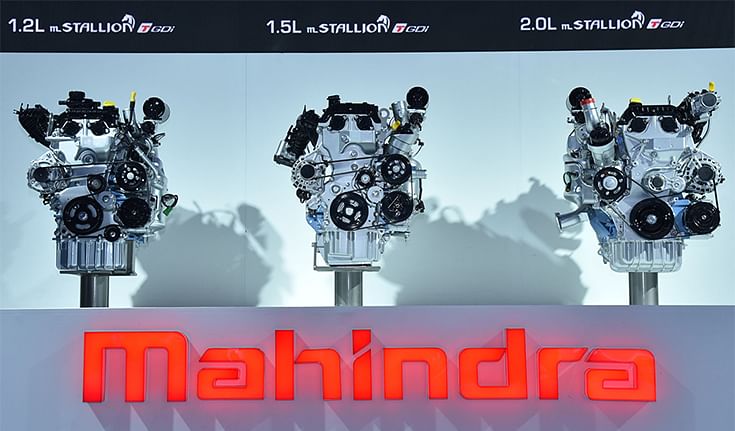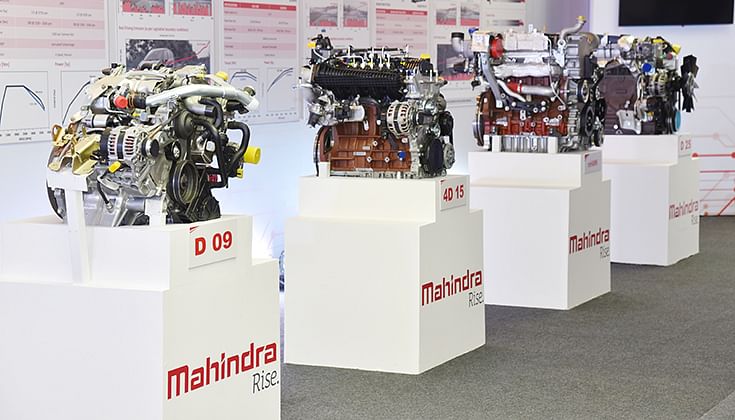Mahindra 3.0: How the Indian SUV brand is reinventing itself . . . again
New leadership, fresh talent and a sharper focus on its core business, underpinned by 12 all-new models by 2025, has set in motion the biggest transformation for M&M since the launch of the Scorpio.
When the Scorpio was launched in 2002, we called it the biggest step forward for Mahindra & Mahindra (M&M) in 50 years, and it certainly was, leapfrogging the brand into a new era of products. Since then, the company has gone from being a rural player to more of a mainstream one, with a string of contemporary products which were a mix of hits and misses. But, more importantly, the success of the Scorpio gave M&M the confidence to embark on a spate of global acquisitions and alliances, and venture into new territory like two-wheelers and M&HCVs.
But did the company spread itself too thin? Were these new acquisitions a distraction from its core business? That’s the current company view, after the old guard handed the baton over to new leadership that is taking a radically different approach. Non-core businesses are being shed to concentrate purely on what made Mahindra great in the first place – full-blown SUVs.
The era of alliances is over. SsangYong, which was bleeding cash, has been dumped; the partnership with Ford recently came to an abrupt end, and Mahindra is confident of going it alone. It won’t be easy, of course, especially in an era where even rival automakers are pooling resources to share costs (and risk) in developing new products for an electrified and digitised world. But the one thing Mahindra has learnt after a year of intense discussions with Ford is that global automakers simply cannot think or perform as frugally as domestic players. “For some of the programmes we were evaluating, we realised that we could do it at 60 percent of Ford’ costs” says a former Mahindra source. Mahindra feels that that being independent will make it faster, more agile and in better control of its destiny.

New Mahindra Thar is a huge success and marks the return of form for M&M.
The success of the new Thar marks a return to form for Mahindra, which until now was sputtering along with a product portfolio that wasn’t quite firing on all cylinders, and reinforces the new direction the company has embarked on.
“It’s all about focusing on our DNA, which is authentic SUVs,” says Rajesh Jejurikar, Executive Director, Auto & Farm Sectors. And this is exactly what the company plans to do going forward. In fact, under the new management of Dr Anish Shah, the new MD and CEO of the Mahindra Group, and Jejurikar, the promise is to focus on nothing other than SUVs that deliver a strong emotional connect.
Electric vehicles (all of them with SUV body styles) will also play a big role in the company’s future product strategy and around 25 percent of the total capital expenditure for product development and expansion will be earmarked for them.

Capex fallocation or SUVs and tractors together is Rs 9,000 crore for the next three years, with an additional Rs 3,000 crore investment for EVs.
Investing smartly
Mahindra’s capital allocation for SUVs and tractors together is Rs 9,000 crore for the next three years, with an additional Rs 3,000 crore investment for EVs. That’s substantially less than the previous three-year period investment of Rs 15,000 crore, but investments have already been made in key capital-intensive areas like powertrains and an all-new electronic (E/E) architecture.
Armed with new, state-of-the-art mStallion petrol and mHawk diesel families, which are package-protected to meet future norms, Mahindra doesn’t have to invest in engine technology for the next five years. And with engine capacities ranging from 1.2 to 2.2 litres, Mahindra has all its future IC-engine-powered products covered.


With its state-of-the-art mStallion petrol and mHawk diesel families, M&M is future-ready for all its IC-engine-powered products.
No investment will be needed for infotainment and electronic systems either. Mahindra has already developed its next-generation ‘Smart Core’ system, which will make its debut in the XUV700 and will be a quantum leap ahead of what is presently available. This all-new E/E system, developed by Visteon, will allow future Mahindras to have the latest infotainment systems, 360-degree cameras, a suite of connected features and even Advanced Driver Assistance Systems (ADAS), which might become mandatory with the next stage of safety regulations.
Still, money is tight, which is why Mahindra is only spending it where it thinks it can win. This means eventually phasing out non-performing product lines, like the Marazzo and KUV100. The thinking is that there’s no point wasting precious resources chasing difficult-to-crack segments like MPVs and micro-SUVs when investment can be more effectively deployed on bread-and-butter product lines and future technologies.
Mahindra also no longer has the luxury of sharing development costs and the benefits of scale with Ford after the planned JV fell through. This means Mahindra won’t have access to Ford’s B772 platform, which was to be the base for the next-gen XUV500 (S301).
With a length of around 4.3 to 4.4 metres, the S301 will be smaller than the outgoing XUV500 and positioned as a Creta fighter, but Mahindra would have to source another platform to underpin this grounds-up new model, and that takes time and money. However, the company doesn’t seem fazed by this setback and feels that, since investments in the engine and E/E architecture are already done, developing the S301 grounds-up “won’t cost more than Rs 1,200 crore,” according to a source
People first
But there are other challenges too. The change in leadership couldn’t have come at a more difficult time for Mahindra. The last year has been a particularly difficult one for the company, fundamentally because of supply chain and production issues. Mahindra didn’t manage the transition to BS6 as smoothly as most other automakers and was more impacted by the semiconductor shortage issue. As a result of all these challenges, its sales and market share fell drastically, and the company had to sit back and watch traditional rivals like Tata Motors surge ahead.
However, the new leadership is nothing less than fired up, and is wasting no time to claw back lost ground. A company insider says, “There’s a new energy, aggression and decisiveness sweeping through the company, the likes of which we’ve not seen for decades.” To shake the company from its slumber, Jejurikar’s first task at hand is to build a strong team, and this means further empowering a handful of trusted, existing senior executives and bringing in fresh people too. Jejurikar is on the hunt for the best global talent to fill in key positions. A company source quips, “The HR department is the busiest in the company these days.”
Already on board is Dr Uli Stuhec, formerly from Ford and an industry veteran, brought in to kick-start Mahindra’s Born Electric programme. But the bigger catch, which is yet to be confirmed, is celebrated designer Pratap Bose, who is rumoured to have moved to Mahindra from Tata Motors as the group global design head. In fact, Bose’s departure from Tata Motors coincides with Mahindra’s announcement of the Mahindra Automotive Design Europe (M.A.D.E), the company’s first ever European design studio which will be set up in the UK. Both Mahindra and Bose have refused to comment on the latter’s new role, but for Bose, designing a new generation of Mahindras is a challenge he would relish.
Design and styling have been a fundamental weakness at Mahindra, and the company has struggled to come up with a cohesive and sharply defined design language. Though Mahindra has its roots in the legendary Jeep, the lack of differentiation in design has led to embarrassing ‘copycat’ legal wrangles with FCA, like with the Roxor in the US and only just now, the Thar in Australia.
One of Jejurikar’s top priorities after taking over was to enhance and build the company’s design capability to another level and to give the Mahindra brand a distinct identity. In fact, in an internal note to company employees, Jejurikar said the “company will invest in design to be future ready”.
M.A.D.E. will give Mahindra the opportunity to tap into an ecosystem of best global design talent. Placement agencies in the UK are believed to be flooded with resumes from people in companies ranging from Jaguar to McLaren keen to join the company’s new design studio. In fact, M.A.D.E is a masterstroke with which, in one swoop, Mahindra has converted a big weakness to a big strength.
Fresh, focused model onslaught
There are as many as 12 new Mahindra models planned over the next five years, but it’s not just a case of carpet-bombing the market in every possible segment and niche available. This time around, there is a much greater focus on high-performing core segments for the brand, where it is confident of finding success. And yes, all of them are SUVs, but more interestingly, most of them will fall in the Rs 10-20 lakh price range. It starts with the all-new XUV700 later this year – a flagship premium SUV, there will be some lifestyle and design-driven products, some models will come to segments where Mahindra is currently absent, and we will even see some dedicated EVs. Suffice it to say, with a strong road map like this, the next decade could be Mahindra’s best yet.
RELATED ARTICLES
Cosmo First diversifies into paint protection film and ceramic coatings
The Aurangabad, Maharashtra-based packaging materials supplier is leveraging its competencies in plastic films and speci...
JSW MG Motor India confident of selling 1,000 M9 electric MPVs in first year
The 5.2-metre-long, seven-seater luxury electric MPV, which will be locally assembled at the Halol plant in Gujarat, wil...
Modern Automotives targets 25% CAGR in forged components by FY2031, diversifies into e-3Ws
The Tier-1 component supplier of forged components such as connecting rods, crankshafts, tie-rods, and fork bridges to l...






 14 May 2021
14 May 2021
 27522 Views
27522 Views














 Autocar Professional Bureau
Autocar Professional Bureau




